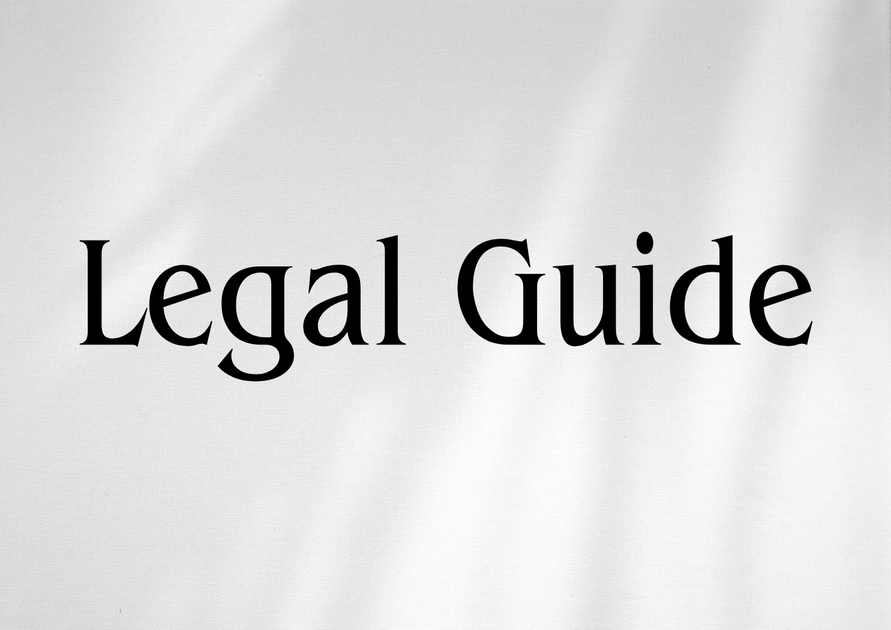Introduction: Navigating the Enforcement of DIFC and ADGM Arbitration Awards in the UAE
The United Arab Emirates has rapidly matured into an international commercial and financial centre, attracting multinational businesses, investors, and entrepreneurs eager to leverage its strategic geography and innovation-driven economy. At the heart of this development are Dubai International Financial Centre (DIFC) and Abu Dhabi Global Market (ADGM)—the UAE’s two leading financial free zones with unique, independent legal frameworks based on English common law. Both have become preeminent seats for arbitration, offering businesses globally regarded dispute resolution services. However, the successful use of these mechanisms turns critically on the enforceability of arbitral awards within the UAE and beyond.
Most businesses and practitioners recognize the appeal of DIFC and ADGM arbitration, but translating an award into concrete relief often depends on a practical and nuanced understanding of the UAE’s evolving legal landscape. Recent legislative updates—such as Federal Law No. 6 of 2018 (UAE Arbitration Law), Cabinet Resolution No. 57 of 2018, and new procedural mechanisms—have transformed the terrain. This article provides an in-depth, consultancy-grade analysis of enforcing DIFC and ADGM arbitral awards, unpacking the law’s nuances, highlighting compliance strategies, and offering actionable guidance for businesses and legal professionals navigating these processes in 2025 and beyond.
Table of Contents
- Legal Framework for Arbitration in DIFC and ADGM
- Recognition and Enforcement Mechanisms in the UAE
- Step-by-Step Enforcement Process
- Recent Legislative and Judicial Updates
- Practical Insights and Compliance Strategies
- Risks of Non-Compliance
- Case Studies
- Comparison: Old vs. New Enforcement Regimes
- Conclusion and Best Practices
Legal Framework for Arbitration in DIFC and ADGM
The Structure of DIFC and ADGM as Arbitration Hubs
Both the DIFC and the ADGM operate under bespoke legal frameworks—adopting English law as their foundational law (except regarding criminal law and select federal public order issues). Their respective arbitration laws are modeled on the UNCITRAL Model Law, ensuring compatibility with the global arbitration ecosystem. The DIFC Arbitration Law (DIFC Law No. 1 of 2008, as amended) and the ADGM Arbitration Regulations 2015 offer predictability, party autonomy, and robust judicial review mechanisms.
Federal Law No. 6 of 2018 (UAE Arbitration Law)
The UAE consolidated its arbitration landscape with Federal Law No. 6 of 2018 on Arbitration, aligning onshore UAE law with modern international arbitration practices. This law governs all arbitration within the UAE, except those in zones with their own arbitration laws, such as DIFC and ADGM, unless the parties agree otherwise.
The New York Convention and Regional Treaties
The UAE is a signatory to the 1958 New York Convention on the Recognition and Enforcement of Foreign Arbitral Awards, ensuring that arbitral awards issued in the DIFC, ADGM, or abroad are generally recognized and enforceable across UAE jurisdictions and internationally.
Recognition and Enforcement Mechanisms in the UAE
Divergence of Enforcement Routes
Enforcement of a DIFC or ADGM arbitral award may occur within the respective financial free zones (in their own courts) or ‘onshore’ before the UAE civil courts, particularly where assets are located outside the relevant free zone. An appreciation of these routes—and their underlying legal basis—is vital.
| Enforcement Route | Governing Law/Rules | Primary Court | Usual Use Cases |
|---|---|---|---|
| DIFC Court | DIFC Arbitration Law / DIFC Court Laws | DIFC Courts | Assets in DIFC or parties consent |
| ADGM Court | ADGM Arbitration Regulations / ADGM Court Procedures | ADGM Courts | Assets in ADGM or parties consent |
| Onshore UAE Courts | UAE Federal Arbitration Law No. 6/2018 / Procedural Code | Dubai Courts, Abu Dhabi Courts, etc. | Assets outside free zone; enforcement in Emirates |
Procedural Mechanisms and Their Interplay: The ‘Conduit’ Approach
The ‘conduit’ jurisdiction concept—whereby a DIFC or ADGM arbitral award is recognized by the DIFC/ADGM courts and then executed onshore—offers a strategic advantage for cross-border enforcement in the UAE. The practical effect is that parties can convert a free zone award into a judgment that is, in most cases, executable by the wider UAE judicial system under the prevailing bilateral memoranda, Federal Arbitration Law, and Cabinet Resolution No. 57 of 2018.
Step-by-Step Enforcement Process
Enforcement within DIFC and ADGM (Intra-free Zone)
- File application for recognition and enforcement: Submit award and required supporting documents (authenticated copy, proof of arbitration agreement, translation if needed) before the respective court.
- Summary procedure: Under the DIFC/ADGM rules, enforcement is generally treated as a summary procedure, barring very limited grounds for objection (e.g., public policy, lack of jurisdiction).
- Issuance of execution order: The court issues an order for execution within the free zone.
Enforcement from DIFC/ADGM to Onshore UAE (Inter-jurisdictional)
- Recognition in free zone court: As per step above; get award recognized if not already done.
- Apply for enforcement in onshore court: File a request to the relevant local Emirates court with supporting documents (per Article 55 of Federal Law 6/2018).
- Judicial scrutiny: The onshore court verifies compliance with procedural and substantive requirements, focusing on grounds similar to those in the New York Convention (e.g., capacity, due process, public policy).
- Execution of award: Upon satisfaction, the onshore court issues an execution order—enabling seizure of assets, bank accounts, etc.
Timeframes, Objections, and Appeals
Recent legal amendments stipulate fixed time regimes (e.g., a 30-day window for challenging enforcement under Article 54 of Federal Law 6/2018). Transparency and efficiency are increasingly prioritized, especially as UAE courts adopt digital filing and streamlined case allocation systems.
Recent Legislative and Judicial Updates
Landmark Legal Developments
- Court of Cassation Ruling (Dubai, 2023): Reaffirmed the UAE courts’ willingness to prioritize enforcement of foreign and free zone arbitral awards in line with the New York Convention, subject only to manifest breaches of UAE public policy.
- Cabinet Resolution No. 57 of 2018: Introduced significant reforms to execution procedures, digital filing, and clarity over documents required for cross-jurisdictional enforcement.
- UAE Civil Procedure Code Updates (2022-2025): Progressive digitization of enforcement processes, enhanced speed and predictability for award creditors.
Emerging Trends in the UAE Arbitration Landscape
The 2025 updates further consolidate UAE’s status as a pro-arbitration jurisdiction. Key points include:
- Wider recognition of ‘conduit’ jurisdiction (especially DIFC/ADGM-to-onshore awards)
- Clarity in grounds for refusal to enforce, strictly limiting judicial intervention (Article 54, Federal Law 6/2018)
- Promotion of judicial specialization, with designated ‘enforcement judges’ in major Emirates
- Improved guidance for document authentication, translation, and digital submission best practices
Practical Insights and Compliance Strategies
Selecting the Appropriate Arbitration Seat
Choice of seat has far-reaching ramifications. For cross-border contracts, selecting DIFC or ADGM as seat provides added certainty over enforcement, especially when paired with respondent assets in these zones or a clear mechanism for conduit enforcement. Consider dispute value, counterparty domicile, asset location, and the preferences of strategic partners.
Ensuring Validity and Enforceability of Arbitration Clauses
Experiences suggest that poorly drafted arbitration clauses are a major risk for award enforceability. To mitigate:
- Use bespoke, unambiguous clauses referencing the desired seat, applicable rules, and express submission to enforcement courts
- Ensure signatory authority and applicable language formalities
- Consult reliable institutional model clauses, e.g., DIFC-LCIA or ADGM Arbitration Centre
Document Management and Evidence Preparation
For smooth enforcement:
- Retain original/certified copies of the arbitration agreement, award, and all procedural correspondences
- Prepare certified Arabic translations, as required by onshore UAE courts
- Keep evidence of due process (notices served, hearing opportunities, etc.)
Compliance Roadmap for Organizations
| Phase | Key Actions | Consultant Tips |
|---|---|---|
| Contracting | Draft arbitration clause, choose seat/rules | Use up-to-date model clauses, confirm capacity |
| Dispute Initiation | File notice per clause/rules | Document service, retain confirmations |
| Award Phase | Secure certified award; translations ready | Engage legal translator at project outset |
| Enforcement | Apply for recognition/execution promptly | Map asset locations; consider digital filing |
Visual Suggestion: Compliance Flow Diagram
Consider including a visual flowchart mapping the steps: Clause drafting → Arbitration → Award → Application to DIFC/ADGM → Conduit enforcement to onshore UAE court (with document and language checks at each stage).
Risks of Non-Compliance
Potential Pitfalls
- Improper arbitration agreement: Can result in refusal to recognize or enforce the award.
- Failure to follow procedural requirements: Omission of required documents, lack of proper legalizations or translations, or missed deadlines may undermine enforcement.
- Public policy breaches: Awards contrary to UAE public policy (e.g., prohibited subjects, usury, etc.) are at risk of non-enforcement.
- Delayed enforcement applications: May result in loss of rights; strict limitation regimes increasingly enforced by UAE courts.
Legal and Commercial Consequences
| Non-Compliance Scenario | Legal Risk | Practical Impact |
|---|---|---|
| Defective clause | Award set aside/refused recognition | Loss of claim, reputational harm |
| Missed deadlines | Dismissal of enforcement | No asset recovery, potential liability |
| Improper translation | Court rejects filing | Costly delay, possibly incur new translation fees |
Case Studies
Case Study 1: DIFC Award Enforced Onshore
A UAE-based company secured a significant DIFC-LCIA arbitration award against an overseas distributor. The distributor’s only UAE assets were outside DIFC. By applying the ‘conduit’ approach, the claimant recognized the award in the DIFC Courts, and successfully enforced through the onshore Dubai Courts under Federal Law No. 6 of 2018, swiftly obtaining bank account attachment orders. Key Insight: Early mapping of counterparty assets and a proactive understanding of court protocols were decisive.
Case Study 2: Pitfalls of Non-Compliant Arbitration Agreement
A European investor sought to enforce an ADGM arbitration award for a joint venture dispute. However, the arbitration clause failed to clearly reference ADGM rules, and the onshore Abu Dhabi Court exercised its discretion to refuse enforcement for ambiguity and lack of party agreement, per Article 4 of Federal Law No. 6/2018. Lesson: Precision in drafting and explicit agreement on seat/rules is critical for enforceability.
Case Study 3: Fast-Track Enforcement with Digital Filing
In 2024, a construction firm leveraged new digital submission features instituted under Cabinet Resolution No. 57 of 2018 to file for enforcement of a DIFC award. The streamlined document upload and e-communication reduced ‘time to execution’ by several weeks versus legacy processes.
Comparison: Old vs. New Enforcement Regimes
| Aspect | Prior to 2018 (Old Regime) | Post-2018 (New Regime) |
|---|---|---|
| Governing Law | UAE Civil Procedure Code (pre-2018) | Federal Law No. 6 of 2018 |
| Grounds for Challenge | Wide discretion for UAE courts | Limited to New York Convention standards/public policy |
| Enforcement Process | Lengthy, paper-based filings, greater unpredictability | Digitized, clearer timeframes, enhanced predictability |
| ‘Conduit’ Approach | Uncertain recognition of DIFC/ADGM awards by onshore courts | Codified and widely accepted; smoother inter-jurisdictional process |
Conclusion and Best Practices
The enforcement of arbitration awards from the DIFC and ADGM is at the forefront of the UAE’s commitment to international best practices and business-friendly dispute resolution. With the UAE’s legal framework—underpinned by Federal Law No. 6 of 2018—the process is now considerably more predictable, efficient, and aligned with global standards. However, technical compliance remains critical; even minor deficiencies can be fatal to enforcement efforts.
For businesses and advisors, proactive mitigation of enforcement risk begins at the contract negotiation stage, continues through the arbitration process, and culminates in the timely, meticulously prepared enforcement application. Adopting digital workflows, staying abreast of ongoing procedural reforms (such as the digitization of the enforcement process and evolving standards for public policy), and seeking expert legal consultancy can make the difference between prompt asset recovery and protracted, costly disputes.
Forward Perspective: As DIFC and ADGM continue to strengthen their profiles, expect to see even greater legal certainty and innovative tools enhancing cross-border enforcement in the UAE, reinforcing its role as a dispute resolution powerhouse in the MENA region.
Best Practices Checklist (Suggested Visual/Table)
| Best Practice | Rationale |
|---|---|
| Draft clear, enforceable arbitration clauses | Prevents future disputes over scope |
| Select arbitration seat based on asset and counterparty analysis | Optimizes enforceability |
| Stay current on legislative and procedural updates | Ensures compliance at all enforcement stages |
| Maintain certified, translated documentation | Speeds up digital or in-person filings |
| Engage local counsel experienced with cross-jurisdictional enforcement | Mitigates avoidable pitfalls |
By internalizing these best practices and leveraging the UAE’s progressive legal environment, organizations can safeguard their arbitral rights and navigate the enforcement process with clarity and confidence.




